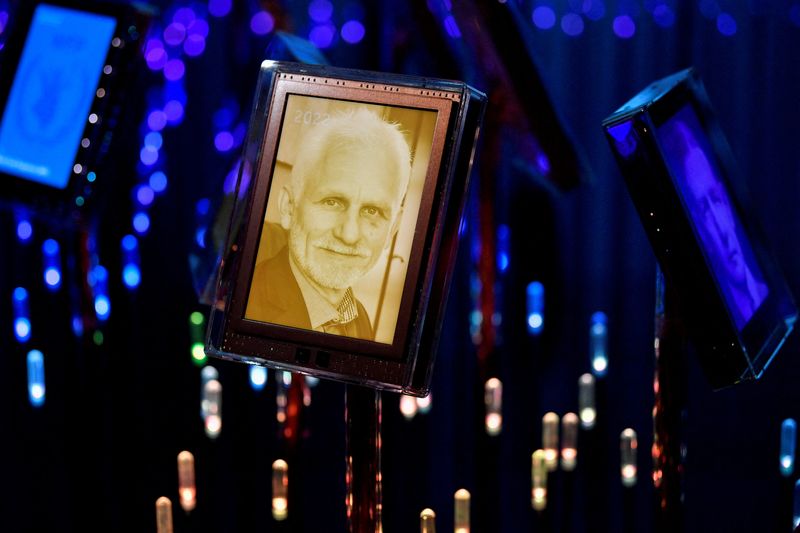By Andrius Sytas
VILNIUS (Reuters) – Supporters of jailed Belarusian Nobel Peace laureate Ales Bialiatski say the human rights activist ought to have been included within the largest East-West prisoner swap for the reason that Chilly Battle on Thursday.
Allies of Bialiatski and different jailed Belarusians are disenchanted they weren’t included within the swap, which noticed eight Russians, together with a convicted assassin, exchanged for 16 prisoners in Russian and Belarusian jails, lots of them dissidents.
A number of the Russian dissidents freed within the swap, together with Ilya Yashin, an opposition activist, expressed anger or reservations on Friday at having been deported from their nation in opposition to their will.
Bialiatski, 61, who’s serving a 10-year sentence for financing anti-government protests after a trial in 2023 condemned by the U.S. and the European Union as a “sham”, was awarded the Nobel Peace Prize in 2022 – a 12 months after his arrest.
“When we heard that the deal is imminent, we hoped that someone from Belarus political prisoners will surely be a part of it. First of all, of course, the jailed Nobel Peace Prize winner,” mentioned Alena Masliukova, a member of Viasna – the human rights organisation based by Bialiatski.
“This was a total disappointment, and we still haven’t overcome it,” mentioned Masliukova, who now lives in exile in Vilnius, the Lithuanian capital.
Amongst these launched on this week’s swap was German citizen Rico Krieger who had been sentenced to dying on terrorism expenses in Belarus, a detailed ally of Russia the place – in line with Viasna – 1,390 persons are in jail for political causes – many linked to mass protests 4 years in the past.
Belarusian President Alexander Lukashenko, in energy since 1994, confronted massive protests after a disputed 2020 presidential election – the most important problem to his rule.
He has lengthy dismissed accusations of human rights abuse.
Viasna says activists are nonetheless dragged earlier than courts for his or her function within the protests, and Masliukova mentioned political prisoners confronted harsh situations in jail.
“They are kept in cold cells, without contact with relatives. They leave jail with damaged health,” she mentioned.

Bialiatski returned voluntarily from exile to Belarus in 2021 regardless of figuring out he probably confronted arrest, which supporters mentioned meant he won’t be keen to depart the nation once more, a course of which legally requires the prisoner to ask for a pardon.
“I know his character and I am sure there is no way he would ask for pardon from Lukashenko,” mentioned Siarhei Sys, a long-time buddy. “I don’t know what happens in five years … It all depends on the state of his health.”




